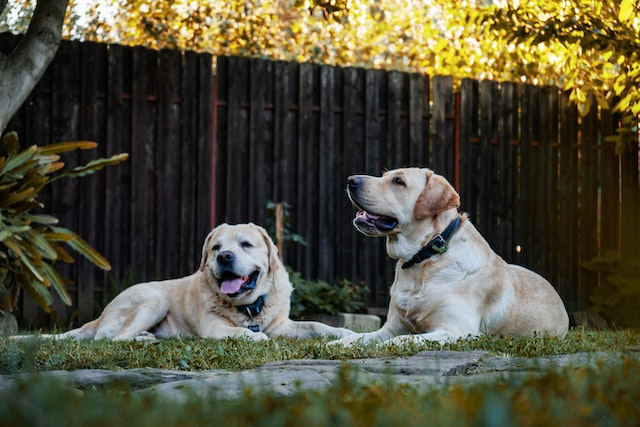
Are you worried about your dog displaying unusual behaviors after being neutered? As a responsible pet parent, you should know all that one can expect after getting your dog neutered.
Well, fear not because we're here to shed light on these warning signs and help you be a better dog parent.
So put your feet up and sit back while we take you on the journey of everything that can happen, good, normal, or bad, after neutering your dog.
What Should You Expect After Your Dog's Procedure?

After spaying female dogs or neutering male dogs, you might notice that they might feel a little woozy and tired from the anesthesia. That is normal! They'll also be given pain medications to help them feel better after the procedure.
Don't be surprised if their appetite is a bit off for the first day, too. They'll have to wear a funny-looking cone to stop them from licking their stitches.
Remember, no baths or swimming for your furry friend for about 10-14 days. Whether you're neutering male dogs or female, this applies to both of them. Make sure to keep that incision site dry and clean!
Rest for more than a couple of days is key for their recovery, so try to limit their activities and ensure they get plenty of snooze time. It's important to keep them calm even if they act like they're ready to run around.
Now, if you have a female pup, the spaying procedure is a bit more complex, but the recovery time should be similar to that of male pups. Usually, it takes about 10-14 days for them to bounce back.
8 Warning Signs After Dog Neutering
Here are some warning signs of infection and other complications that you should keep an eye out for after your dog's surgical procedure -
-
Foul Odor
If you notice a strong, unpleasant smell coming from the incision site, it could be a sign of infection. A healthy incision should not have a bad smell or any noticeable odor. Keep the incision site dry.
-
Redness, Swelling, or Bruising
While some degree of redness and minor swelling sometimes is normal immediately after the surgical procedure, if you observe acute or worsening redness, excessive swelling, or bruising at the incision site, it may indicate an issue.
-
Loss of Appetite
While a temporary decrease in appetite is expected, if your dog refuses to eat for more than a couple of meals or shows a significant loss of interest in food, it could be a cause for concern.
-
Prolonged Lethargy
It's normal for your pup to be tired and has reduced energy levels during recovery. However, if their lethargy persists for over a couple of days and they show no signs of improvement, it's worth investigating further.
-
Incision Reopening
If the incision site reopens, meaning the wound separates or starts bleeding again, it should be evaluated by a veterinarian as it may require medical attention.
-
Bleeding or Pus
Any ongoing bleeding or the presence of pus, either yellow or greenish discharge from the incision site, should be considered a warning sign of infection. It's important to have it assessed by a veterinarian promptly.
-
Signs of Prolonged Pain
While some discomfort is expected after the neuter surgery, if your furry friend continues to exhibit signs of pain, such as shaking, hiding, excessive drooling, or reluctance to move, it's advisable to consult your vet after over a week.
-
Persistent Vomiting or Diarrhea
While mild vomiting or diarrhea immediately after the procedure can be normal due to anesthesia, if it persists for longer than 24 hours or becomes severe, it could indicate a complication that requires attention.
Remember, these warning signs are not exhaustive. If you have concerns about your dog's post-neutering recovery, it's always best to consult your veterinarian. They can provide the necessary guidance and ensure your furry friend receives appropriate care if any complications arise.
You may also like: 8 Signs Your Dog Needs to Be Neutered
Final Words!
Keeping an eye out for warning signs after your dog's neutering procedure is essential for their well-being and recovery. While most dogs bounce back without issues, it's important to be aware of any concerning symptoms that may arise.
From signs of infection like a weird smell or redness and swelling at the incision site to other complications such as the incision site bleeding, reopening, or prolonged pain, staying vigilant is key.
By recognizing warning signs early and taking appropriate action, you can ensure your dog receives the necessary attention and treatment if any possible complications occur.
Always consult your vet if you notice any warning signs or concerns. They're the experts who can provide tailored guidance for your furry friend's needs.
You can help your dog recover after the neuter procedure or spaying procedure with proper care and attention.


0 comments